Following are excerpts of the text of the article:
On the eve of Iran’s presidential elections of 17 June 2005, George W. Bush declared that the elections did not have any legitimacy, because “Iran’s president has no power.” But, after Mahmoud Ahmadinejad was elected, refused to stop Iran’s uranium enrichment program, and began criticizing Israel and casting doubts on Holocaust, suddenly he became the most powerful man in Iran who supposedly had his finger on the trigger for Iran’s non-existent nuclear arsenal.
Fast forward to Iran’s presidential elections of 14 June 2013, and we see the same trends. Before the elections, the neoconservatives declared them meaningless and a charade. Israel’s Mossad “assumed that (Iran’s Supreme Leader Ayatollah Ali) Khamenei would stop at nothing to install one of his reliable loyalists as Ahmadinejad’s successor,” a sentiment shared by the War Party in the United States. It was claimed by many that the elections will not change Iran’s nuclear policy. Denis Ross of the Washington Institute for Near East Policy (WINEP) and one of Israel’s best lobbyists in Washington, did not completely dismiss the elections, but opined that no moderate can possibly win the election, saying that the elections reflect (Ayatollah) Khamenei’s “desire to prevent greater liberalization internally and accommodation externally.” The truth turned out to be the opposite. Rohani campaigned for better relations with the outside world, and more freedom at home.
Meanwhile, the most meaningful changes were taking place in Tehran. The third nationally-televised presidential election debate on June 7 was turned by candidate Hassan Rohani into a referendum on the direction of Iran’s foreign policy, and in particular its nuclear program. He strongly attacked Ahmadinejad and his chief nuclear negotiator Saeed Jalili, himself a candidate, for their failure to reach an agreement with the West. Most interestingly, Ali Akbar Velayati, former foreign minister and current senior foreign policy adviser to Iran’s Supreme Leader Ayatollah Ali Khamenei, also attacked Jalili and declared that twice in the past (Ayatollah) Khamenei’s representatives, including Velayati himself, had reached a tentative agreement with the European Union about Iran’s nuclear program, but each time the agreement was scuttled by the Ahmadinejad administration.
Rohani won the election in a landslide. Suddenly, the War Party and Israel had to face an Iranian president whose specialty is national security and Iran’s nuclear program. A president who, as Iran’s chief nuclear negotiator from 2003-2005, reached an agreement with the European Union for suspending Iran’s uranium enrichment program, which Iran carried during that period, only to be scuttled by the Europeans because they got greedy and wanted an end to the program altogether; a President-elect who as a candidate declared on national television that it is possible for Iran to keep its nuclear program and negotiate a deal with the West and that… the… economic sanctions imposed on Iran by the United States and its allies are harming Iran and the Iranian people, and a moderate cleric who speaks about a more open society. The War Party, Israel, and their Iranian allies panicked, and began a smear campaign.
First, Sohrab Ahmari, an Iranian-American neoconservative, claimed in the Wall Street Journal (where he is an assistant book editor) that Rohani had “unleashed attacks on pro-democracy students in 1999.” The reality is very different. At the time Rohani was secretary general of the Supreme National Security Council. In a speech on July 14, 1999, Rohani condemned the attacks by vigilante groups and plainclothes security agents on the dormitories of the students at the University of Tehran that had triggered the unrest, but also condemned those who used the legitimate student protests to attack governmental buildings. He had not unleashed the attacks by the vigilante groups on the students. This episode was actually hotly discussed in the aforementioned presidential debates on June 7.
Then, it was claimed that Rohani was involved in the bombing attack on Argentine Israelite Mutual Association (known with its Spanish acronym AMIA) in Buenos Aires on 18 July 1994 that killed 85 people. But, Alberto Nisman, the Argentinean prosecutor of the case denied the allegation,… Note that, to this point, Iran’s involvement in the attack is only an allegation that has not been proven in any court of law. Indeed, Hadi Soleimanpour, then Iran’s Ambassador to Argentina who had been alleged to have been involved in the attack, was arrested in Britain in 2003 based on extradition request from Argentina, but because the Argentineans failed to present any evidence of his involvement (indeed, Iran’s), he was released and returned to Iran.
The smear campaign got sillier by the moment. It was claimed that Rohani has plagiarized part of his PhD thesis that he received at the Scottish Caledonian University, although the book that Rohani has supposedly copied from in his work has been cited in the thesis.
Even Mojahedin Khalq Organization (MKO), which was removed late last year from the State Department’s list of the terrorist organizations and is widely despised by the Iranian people for its many acts of treason got into the action, with MKO’s leader Maryam Rajavi declaring that Rohani is not a moderate cleric.
But, this was not the end of the campaign. Suddenly, Iran’s president was reduced to a powerless man again by the War Party and Israel. Ali Gharib published an excellent summary of those in the War Party and Israel Lobby who have tried to dismiss Rohani’s election as ineffectual and meaningless. On June 14, the day of voting, Mark Dubowitz of the neoconservative Foundation for the Defense of Democracy and a certified warmonger, declared that Iran “has a presidential selection, not election,” because (Ayatollah) Khamenei is the most powerful man in Iran. After Rohani was elected, a panic-stricken Dubowitz cautioned his readers that they should not get excited about the elections, because Iran is only trying to buy time for its nuclear program.
And, of course, no one can dismiss Benjamin Netanyahu’s mastery of ranting and lying about Iran. He has been working overtime to dismiss Rohani’s election as nothing important, issuing one warning after another. His election has worried Netanyahu so much, that he suddenly claimed Iran is pursuing an arsenal with 200 hundred nuclear warheads, and that Rohani’s election “will not stop Iran’s quest for nuclear bomb.” Why 200, one might ask? Presumably because Israel is known to have 200 nuclear warheads (other estimates are lower, but also as high as 400) and, so, 200 is the first number that probably comes to Netanyahu’s mind. He has warned anyone who would listen that, “Let’s not delude ourselves,” adding, “The international community must not become caught up in wishes and be tempted to relax the pressure on Iran to stop its nuclear program. ...” Chagrin has also taken over even the “liberal” Israeli newspaper Haaretz, which declared that, “Rise of new Iran president delays Israel’s military option by at least another year.”
Netanyahu’s allies in the United States, including the Commentary magazine, have been issuing similar warnings. Washington Post’s columnist and resident Israel lobbyist Jennifer Rubin warned Obama not to delude himself with Rohani’s election, because Rohani has called for direct negotiations with the United States, which to Rubin means only that he wants to buy more time for his country. WINEP’s managing director Michael Singh warned that “Iran must be judged by action, not by personalities.” True, which is why the author never trusts President Obama to be any better than his predecessor when it comes to the Middle East and Iran, because the United States imperialist policy toward that region is independent of its president, and Obama has certainly been far worse than George W. Bush in dealing with Iran, waging a crippling economic war on Iran, in addition to illegal cyberattacks on Iran’s nuclear infrastructure.
In a speech on June 26, (Ayatollah) Khamenei repeated a theme that he has been emphasizing since his annual speech on Noruz, the beginning of the new Iranian year on March 21, namely, that resolving the dispute between Iran and the United States over Iran’s nuclear program is a simple task, “If the United States is serious about it.” In his speech, he said, “Some countries have organized a united front against Iran, are misguiding the international community [about the nature of Iran’s nuclear program], and with stubbornness do not want to see the nuclear issue resolved. But if they put aside their stubbornness, resolving the nuclear issue would be simple.” He has emphasized for the past several months that he is not opposed to direct negotiations with the United States, although he believes that they would not be successful…
… (Ayatollah) Khamenei appears to be ready to make a deal, and in Rohani Iran will soon have a president that knows the nuclear issues, has been deeply involved in them for two decades, and wants accommodation with the West, while protecting Iran’s vital interests. Can the United States take yes as an answer? I doubt it, but I would like to be proven wrong.
EP/PA
MNA
END
MNA
END


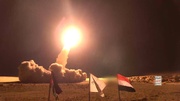
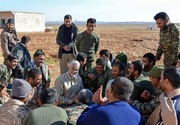
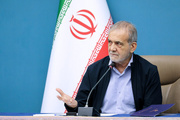
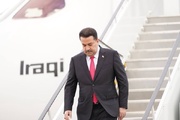
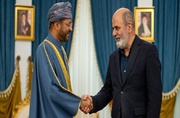
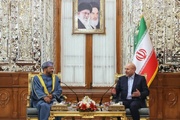
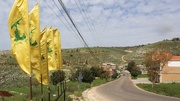

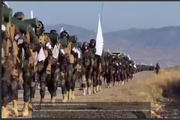
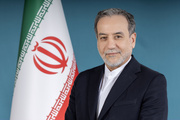
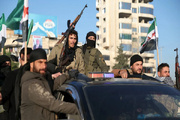


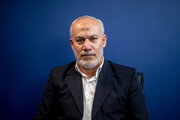


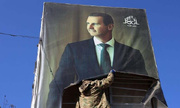
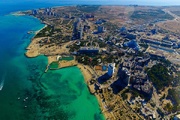

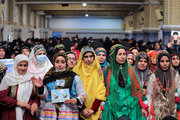
Your Comment